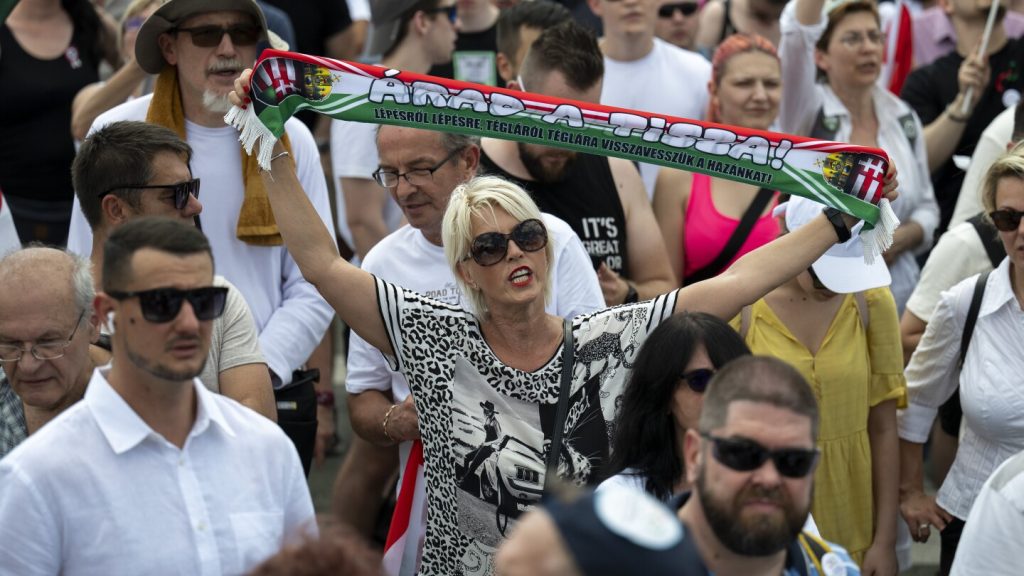In Hungary, political newcomer Péter Magyar is making waves in the lead-up to the European Parliament election, hoping to challenge Prime Minister Viktor Orbán’s nationalist government. Magyar, a former insider in Orbán’s Fidesz party, has quickly risen to prominence by accusing the prime minister of corruption and anti-democratic behavior. His party, Respect and Freedom (TISZA), has gained support from voters disillusioned with Orbán’s rule and traditional opposition parties. Magyar’s platform focuses on building a more peaceful and happy country and ending Orbán’s 14-year grip on power.
Magyar’s final campaign rally in Budapest drew tens of thousands of supporters, demonstrating his growing influence and potential to disrupt Fidesz’s hold on Hungarian politics. While polls indicate that Fidesz is likely to win a relative majority of votes in the EU elections, TISZA could capture up to 30% and reduce Fidesz’s representation in the EU legislature. The movement has resonated with voters who feel frustrated with the current political landscape and are seeking a fresh alternative to challenge Orbán’s rule.
One of Magyar’s supporters, Mária Németh, expressed her disillusionment with Hungarian politics and Orbán’s leadership, citing lies and manipulation in the political discourse. She highlighted the importance of peace and the rejection of war rhetoric in Hungarian politics, emphasizing the need for a change that Magyar’s movement represents. Orbán has framed the election as a choice between peace and conflict, positioning himself as a defender of Europe’s stability while painting his opponents as proponents of war.
Orbán’s anti-immigration stance and commitment to preserving Hungary as a “migrant-free” country have been central themes of his campaign. He has linked past conflicts in Europe with demographic shifts, emphasizing the need to maintain a majority of “white Christians” in the region. In contrast, Magyar has rejected accusations of being “pro-war” and has advocated for a peaceful resolution to the ongoing conflicts, including the situation in Ukraine. He has called for unity among Hungarians and a rejection of fear-mongering propaganda.
As the election approaches, Magyar has reiterated his commitment to creating a country where Hungarian families can live in peace and security, free from the fear of war. He has positioned TISZA as a movement that transcends traditional political divides, focusing on the well-being of Hungarian citizens and the prospect of a brighter future. With momentum building behind his campaign, Magyar aims to challenge Orbán’s dominance and offer voters a new vision for Hungary’s political landscape. The outcome of the European Parliament election will be a significant test of support for both Orbán’s government and Magyar’s burgeoning movement.


